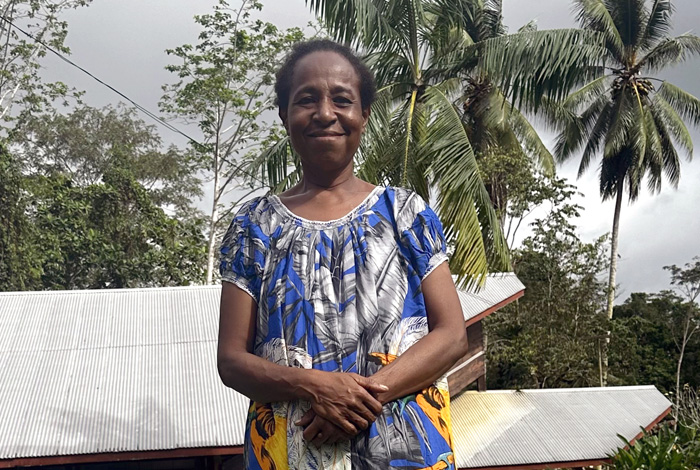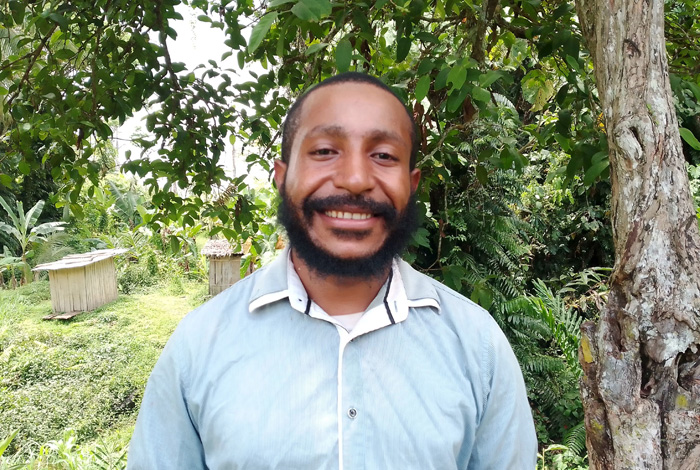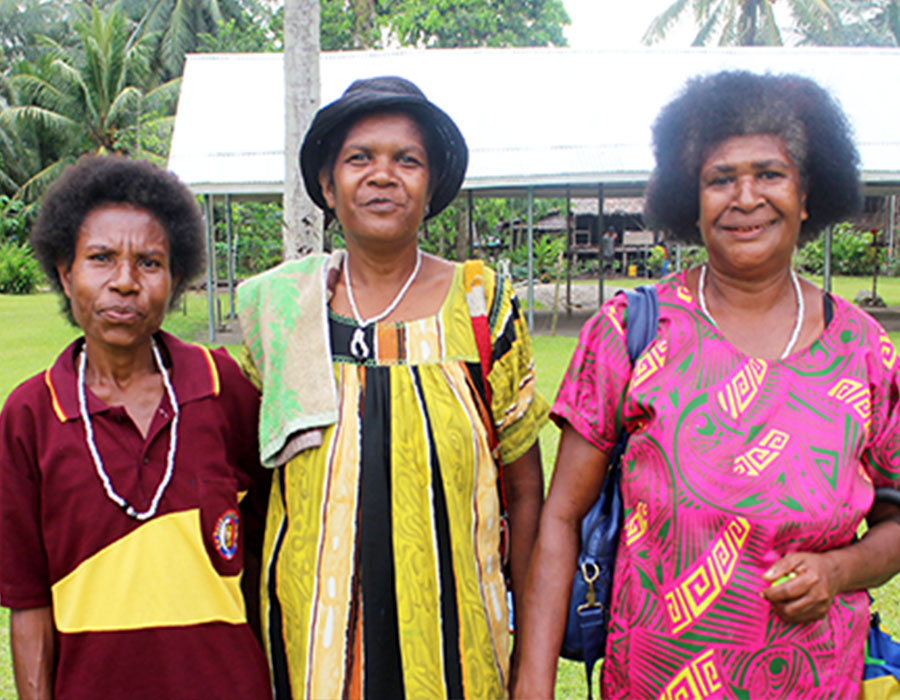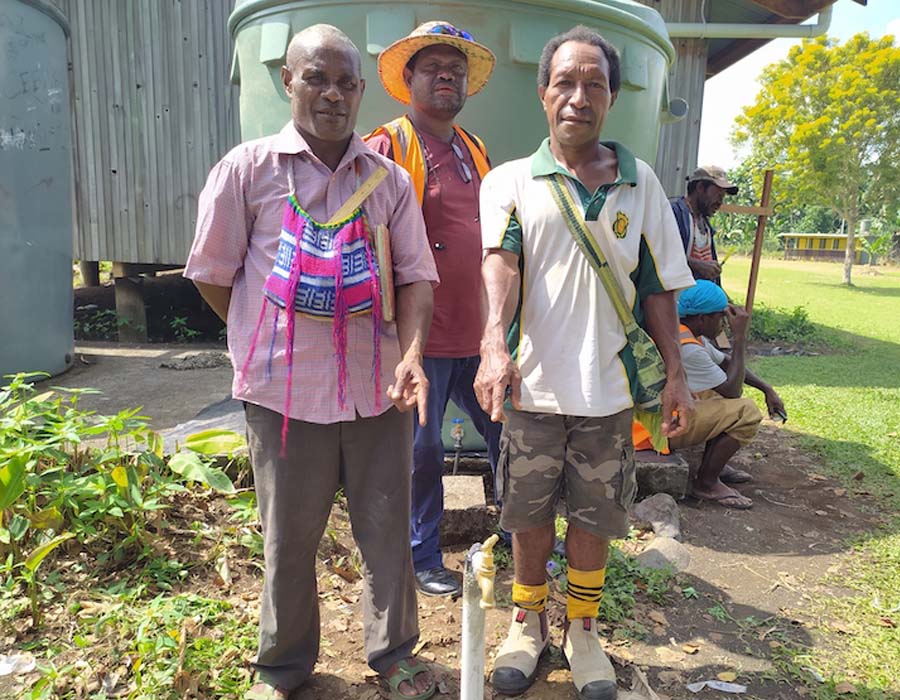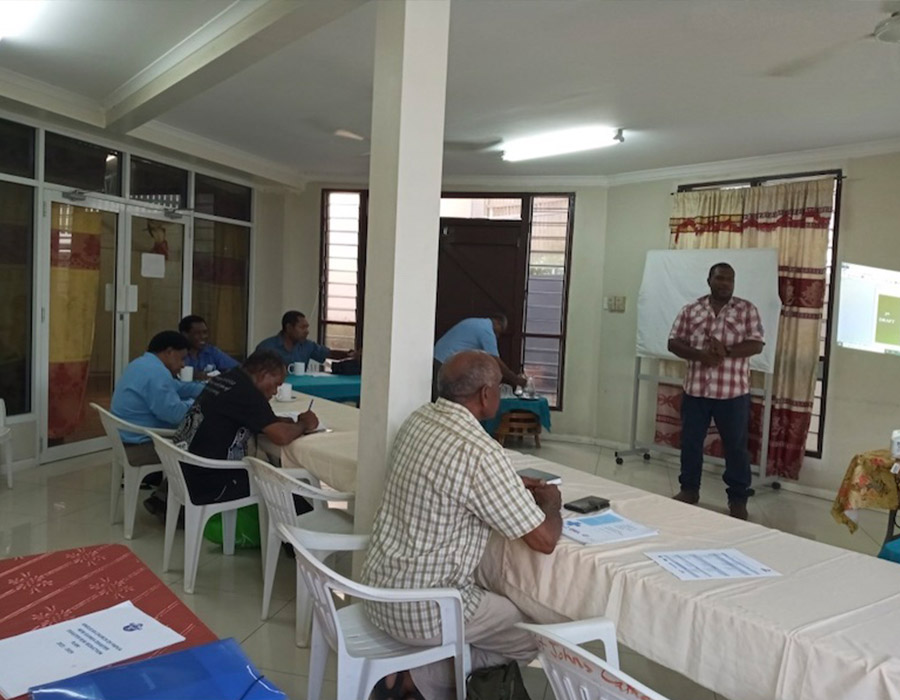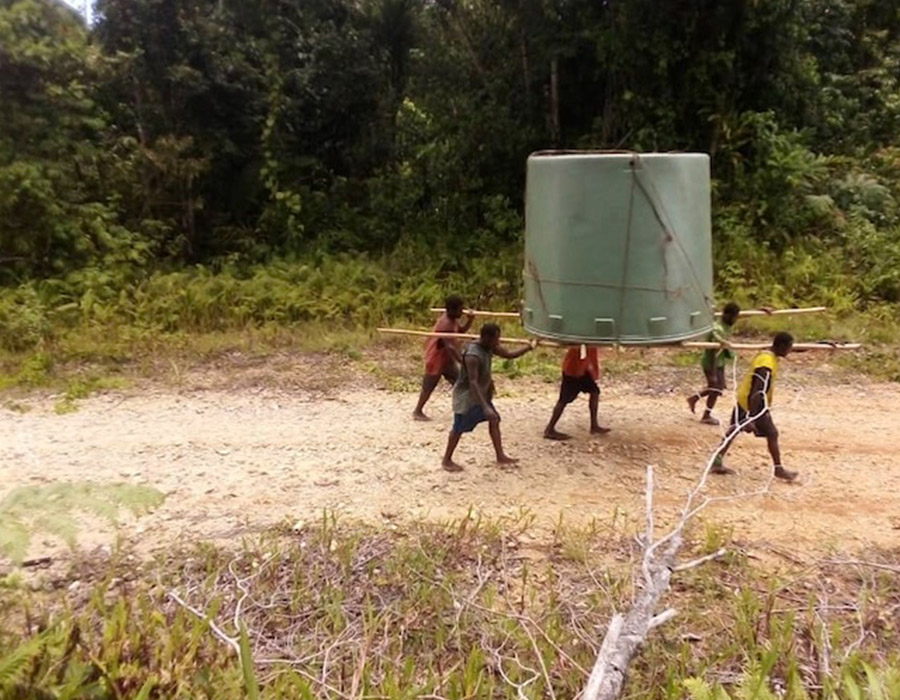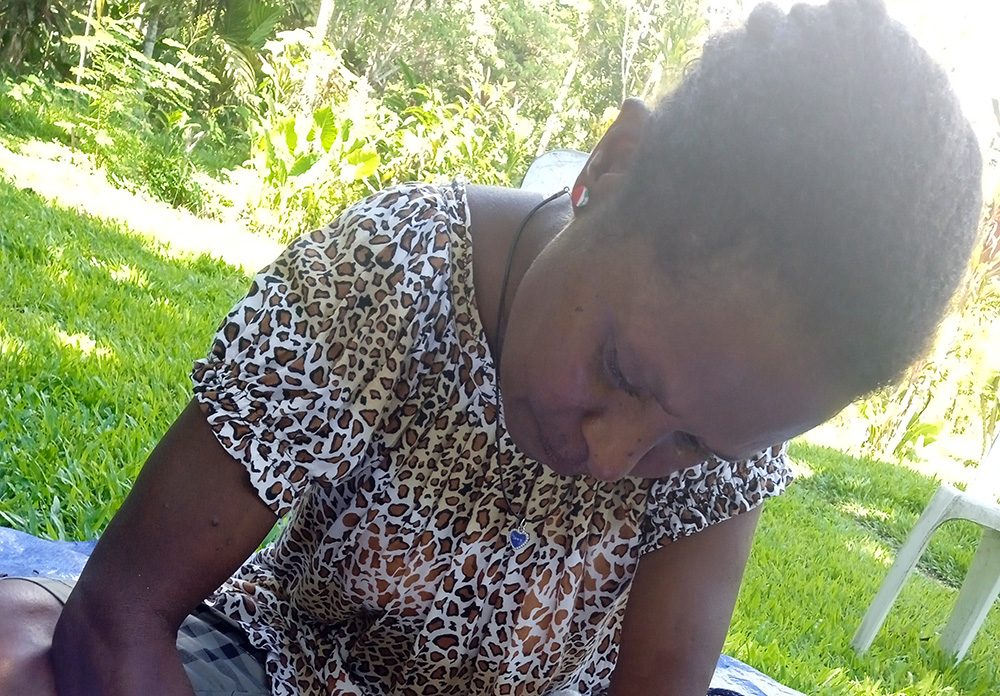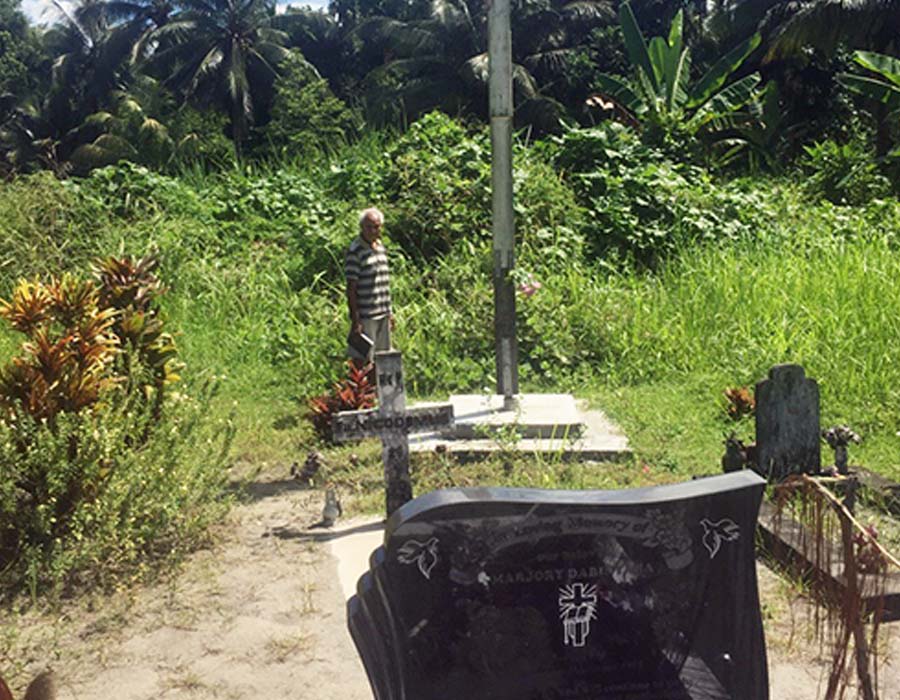Papua New Guinea is one of the most culturally diverse countries in the world.
Over 800 languages are spoken throughout the islands, and the national population of 8 million are comprised from over 1,000 distinct ethnic groups.
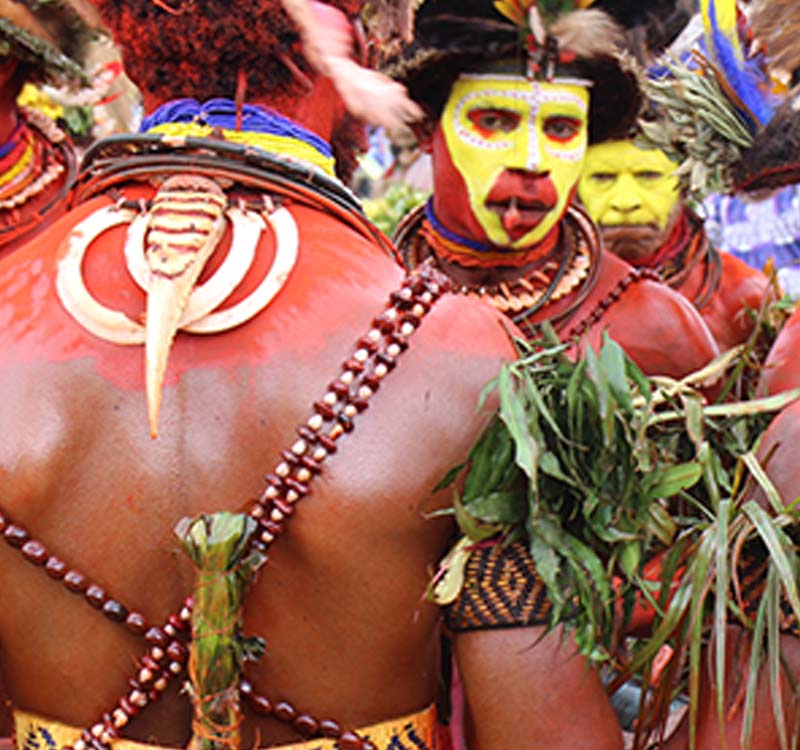
It is also a country undergoing rapid change, as people move away from their villages to seek work and education in the cities. Because of the complexities of land tenure and the lack of employment opportunities, many end up living in settlements on the edges of the towns.
ABM and AID have had a long relationship with the Anglican Church of PNG (ACPNG) to address many of these challenges.
The Anglican Province of PNG is made up of five dioceses – Aipo Rongo, Dogura, New Guinea Islands, Popondota and Port Moresby. Around 3% of Papua New Guineans identify themselves as Anglican, although in some provinces such as Oro, this figure is as high as 60%.
Beginning in 1885, Australian missionaries were first sent to support the church to deliver its mandate, before a partnership model was adopted with ACPNG to empower local, community-based development. Today, AID works with both the church and Anglicare PNG, the church’s social and development arm, to support the building of sustainable communities.
More than 38% of Papua New Guineans live in below the poverty line (receiving less than US$1.90 per day.) There is also high level of gender inequality, with PNG ranking 140 on the Gender Inequality Index among the 155 countries surveyed in 2014.
Almost 40% of people over 15 are illiterate (35% are male and 42% female). Only 10% of women and 12.5% of men have received some secondary education. The average number of years a child spends at school is 5.5 years for males and 4 years for females, mostly in primary school.
The current focus of the AID partnership is on building capacity to serve communities in especially rural communities and urban settlement communities in the areas of literacy and numeracy, social inclusion, safeguarding and disaster management. AID also works with the Anglican Church of PNG as it equips itself to provide leadership in addressing social and economic challenges. We also currently support work by Anglicare and ACPNG to address COVID-19, especially in schools and rural and remote communities.
Your support of AID enables this important work to take place.
In addition to the work of AID in building sustainable communities, ABM supports ACPNG’s Newton Theological College, contributing to building a church to serve Papua New Guineans in the 21st Century.
Papua New Guinea
Building Community Resilience
Support the Anglican Church of Papua New Guinea to better serve their communities by strengthening its systems and upskilling its people.
The Bishop Newton School of Theology
Support the Bishop Newton School of Theology in Papua New Guinea to train their students for theologically-informed futures, including being ordained as a priest in the Anglican Church.
Church Partnership Program
AID works in partnership with Anglicare PNG and the Anglican Church as part of the Church Partnership Program. This program brings...
Following the Way (2010 Papua New Guinea Documentary)
This 40 minute documentary made by filmmaker Steve Ramsden (son of the former Bishop of Port Moresby, Peter Ramsden and his wife Sue Ramsden) gives an informative introduction to the Anglican Church of Papua New Guinea and to PNG in general. The viewer is taken on a journey around the country, visiting all five dioceses of the Church where the stories of many people can be heard, stories which are still relevant today.
Emergency Updates
Global: COVID-19 Update
Engaging in COVID-19 awareness and COVID-19 economic relief is not always easy anywhere in the world. Anglicare PNG staff recalled...
Anglican Church of PNG review its emergency response & disaster risk reduction plan
Natural disasters are a continuing threat to the people of Papua New Guinea...
Bringing clean water and combatting negative messages about the COVID-19 vaccine
Anglicare installed nine 5000l rainwater tanks and 32 handwashing facilities in an area which lacks...
Project Updates
Recent evaluation finds thousands of young Papua New Guineans supported to gain literacy and numeracy skills.
Read this summary to find out the impacts of a program which aimed to improve literacy levels and support local Papua New Guinean communities to respond to the COVID-19 pandemic.
Latest News
A Trip to Gona
Popondetta is not much of a tourist town. It has few natural attractions. It’s dirty, usually noisy and fairly loud. It is a market...
